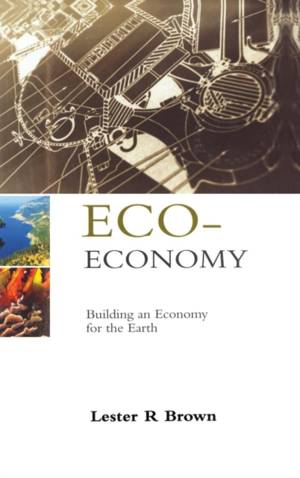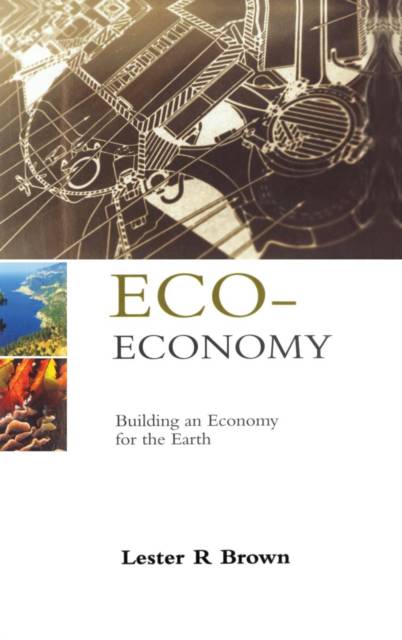
- Retrait gratuit dans votre magasin Club
- 7.000.000 titres dans notre catalogue
- Payer en toute sécurité
- Toujours un magasin près de chez vous
- Retrait gratuit dans votre magasin Club
- 7.000.0000 titres dans notre catalogue
- Payer en toute sécurité
- Toujours un magasin près de chez vous
Description
In 1543, Polish astronomer Nicolaus Copernicus challenged the view that the sun revolved around the earth, arguing instead that the earth revolved around the sun. His paper led to a revolution in thinking.
In Lester Brown's brilliant and invigorating account of the industrial economy, he shows how a rethink of its fossil fuel-based, throwaway ethos is necessary to ensure that it works with, not against, the natural environment.
The issue now is whether the environment is part of the economy or the economy is part of the environment. Brown argues the latter, pointing out that treating the environment as part of the economy has produced an economy that is destroying its natural support systems.
One of the foremost experts on the new economic opportunities, Brown shows the vast economic potential and environmental gains that exist from eliminating the waste and destruction of current consumption. He describes how the global economy can be restructured to make it compatible with the earth's ecosystem so that economic progress can continue, with high standards of living and secure employment for all, while conserving resources and restoring the environment.
In the new economy, wind farms replace coal mines, hydrogen-powered fuel cells replace internal combustion engines, and cities are designed for people, not cars. Eco-Economy is a map of how to get from here to there. It is an essential guide to the economy of the 21st century and will be compelling reading for business readers and environmentalists alike looking for ways to build a better future.
Spécifications
Parties prenantes
- Auteur(s) :
- Editeur:
Contenu
- Nombre de pages :
- 352
- Langue:
- Anglais
Caractéristiques
- EAN:
- 9781853838262
- Date de parution :
- 01-06-03
- Format:
- Livre relié
- Format numérique:
- Genaaid
- Dimensions :
- 156 mm x 234 mm
- Poids :
- 671 g

Les avis
Nous publions uniquement les avis qui respectent les conditions requises. Consultez nos conditions pour les avis.






